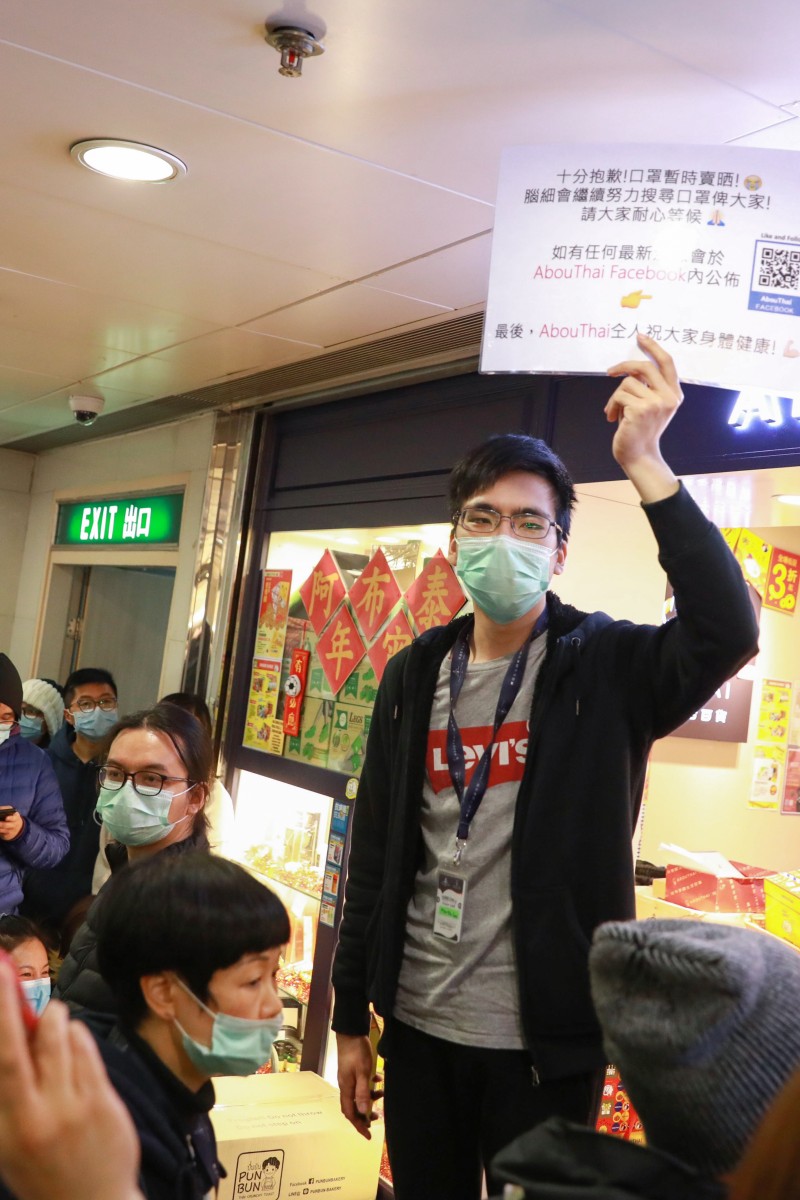 A environment of panic is a breeding ground for fake news and false rumors.
A environment of panic is a breeding ground for fake news and false rumors. The deadly novel coronavirus outbreak which so far has infected more than 9,800 people worldwide and has killed more than 200 since emerging in China, has also create many false posts on social media.
Here are the real facts about some of the fake news and misinformation that has been circulated online.
Wuhan virus: Hong Kong researchers have developed vaccine but need time to test it, expert reveals
Sydney food not contaminated
In Australia, multiple Facebook posts shared hundreds of times claimed to show a list of foods and locations in Sydney which have been contaminated by the new coronavirus strain first discovered in the Chinese city of Wuhan in late December.
One post, published on January 27, identified different types of rice, cookies and onion rings that allegedly contain traces of the virus. It also claimed that a “bureau of diseasology” had run tests and discovered the strain in several Sydney suburbs.
But the local health authority said the locations listed posed no risk to visitors, and the foods named did not appear in the New South Wales food authority’s list of recalls and advisories.
Not Wuhan market
A video viewed more than 88,000 times on Facebook purported to show the market in Wuhan where the virus strain materialised. In reality, it was filmed at an Indonesian market.
The misleading post was published on an account in the Philippines on January 26, 2020. The footage showed bats, rats, snakes and an assortment of other animal meat products being sold at a bustling market.
However, a reverse image search using key frames extracted from the video led to another identical YouTube clip uploaded on July 20, 2019.
It is confirmed the video was in fact captured at the Langowan market in Indonesia’s North Sulawesi province.
Fake death projections
In Sri Lanka, a Facebook post shared thousands of times claimed doctors were projecting that the entire population of Wuhan - a city of 11 million people - would likely die of the novel coronavirus.
This is false; Chinese authorities have made no such projection.
There is currently no vaccine for the new strain of coronavirus on the market, although Hong Kong scientists say they have one. But the US Centres for Disease Control and Prevention stated that most people will recover on their own.
The post also claimed the virus could be caught by eating the meat of the Chinese cobra but this has not yet been established.
Salt water can’t kill virus
Multiple posts on Weibo, Twitter and Facebook shared in January claimed top Chinese respiratory expert Zhong Nanshan had told people to rinse their mouths with salt water solution to prevent infection.
But the claim is bogus; the expert’s team said saline would not “kill” the new virus and urged people not to believe or share medically-inaccurate online rumours.
The World Health Organisation also said there was no evidence that saline solution would protect against infection from the new coronavirus.
Conspiracy theories
Multiple posts on Facebook and Twitter alleged that the virus was created on purpose - with theories including that it was manufactured by the US Centres for Disease Control and Prevention.
The posts included patents to bolster their claim. But these were in fact patents registered in an effort to combat different strains of coronavirus, for example by developing vaccines.
False alarm in France
In France, several social media posts have circulated with claims that people had been infected in the areas of Val d’Oise, Savoie, Lot-et-Garonne and Pyrenees-Orientales.
These false reports were accompanied by images made to look like they were screenshots from several French news sources.
However, these images were digitally manipulated. No cases have been confirmed in these regions.
